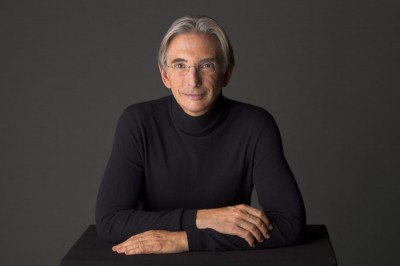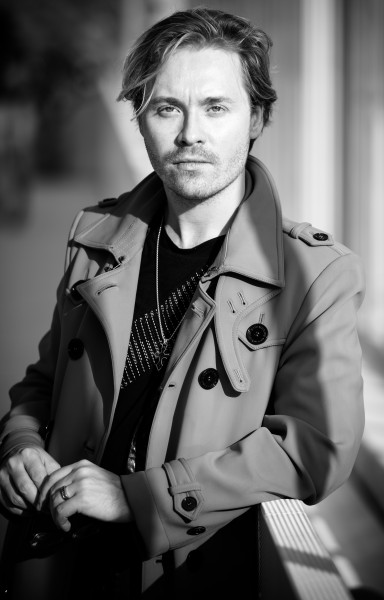
Mahler Seventh to close New World season; MISO welcomes Soukhovetski
This is the wrap-up weekend for two local orchestras, with the New World Symphony and the Miami Symphony Orchestra ending their seasons in big fashion.
The New World offers another in its cycle of symphonies by Gustav Mahler as conducted by Michael Tilson Thomas. This time it’s the Seventh, usually considered the least commercial of the nine symphonies and Das Lied von der Erde.
Composed in 1904 and 1905, and premiered in 1908, it is a huge, five-movement work for a gigantic orchestra, but as usual in Mahler, moments of symphonic heft alternate with chamber-style intimacy; it’s his exploration of all the colors in the orchestra that help make him such a remarkably interesting composer. Two special features of this work are the two Nachtmusik movements (Nos. 2 and 4), which frame a strange, hushed Scherzo. In the first, two solo horns trade a motif, as if calling to each other across a mountain pass; in the second, Mahler adds a mandolin and guitar, an effect that adds an extraordinary delicacy to crucial passages in the movement.
Thomas, or MTT as he’s usually known, has recorded this work and conducted a very fine performance of it with his San Francisco Symphony in the 2012 Proms in London. As it happens, I asked him about this symphony last fall when I was writing a preview of the New World’s opening concert for Ocean Drive magazine; I wanted to talk to him about the end of the season as well as the beginning.
The magazine didn’t use his comments about the Seventh, but I still have them in my notes, and thought they were really worth reading. Here’s what he had to say:
“I could not imagine a better place in the world to hear Mahler’s Seventh Symphony than in the New World Center because the perspective the audience has is of being inside the orchestra. The Mahler Seventh is a dazzling, stream-of-consciousness orchestral experience, both in the notes, which kind of make their way through all kinds of musical styles, from Viennese music to Bulgarian music, to things that sound vaguely like English music hall. It’s almost a hallucinatory film kind of scenario that the piece has.
“For me, the last movement, which is a notorious problem for conductors … I was kind of struggling to understand what the relationships were between these streams of music in the piece, some of which sound like Wagner, and some of which sound like folk bands, or Gilbert and Sullivan, or God knows what.
“And then I suddenly had the revelation that that was the whole point: That there was no relationship between these things. That this was Mahler exploring, as he did in many of his pieces, forms which later became used by great film directors, like [F.W.] Murnau and [Fritz] Lang. Mahler was already experimenting with these different scenes, sections of pieces that you cut back and forth between.”
That seems to me to be a crucial insight, and a great way to get your head around this amazing, constantly surprising symphony. Mahler performances these days are still events, even though his renaissance and establishment as a great composer began in earnest in the 1960s. Fifty years on, it’s still a special occasion to hear a big Mahler symphony in the concert hall, and the relative rarity of this one makes it even more special.
The New World and Michael Tilson Thomas perform Mahler’s Seventh at 8 p.m. Saturday and 2 p.m. Sunday at the New World Center, Miami Beach. There are almost no seats left for either performance, judging by the seating charts on the website, but perhaps a call to 305-673-3331 or a quick visit to nws.edu will be fruitful. Lacking that, you can always catch it Saturday night outside the building, in the season’s last Wallcast event.
Konstantin Soukhovetksi.
Miami Symphony: Eduardo Marturet closes the 25th anniversary season of his orchestra’s concerts with an all-Russian program featuring pianist Konstantin Soukhovetski [here playing the Rachmaninov Second Sonata].
The current political situation in Russia, like the Cold War situation vis-à-vis the Soviet Union, is fraught with uncertainty, but the world has long embraced Russian arts, particularly in music, literature, dance and visual art. That’s not likely to change anytime soon, and this concert will offer box-office gold in the form of the Rachmaninov Second Piano Concerto and the “Polovetsian Dances” from Alexander Borodin’s opera Prince Igor (cannibalized and popularized in the Broadway musical Kismet in the 1950s).
The concert will close with the Tchaikovsky Fifth Symphony, a surefire audience favorite replete with memorable tunes, brilliantly orchestrated. Tchaikovsky’s melodic gift was prodigious, and his feeling for orchestral color most distinctive. His scoring has as personal and unforgettable a touch as the big tunes that have made him a worldwide favorite since he first achieved cultural eminence in the 1870s.
Marturet and his band will take the stage at the Knight Concert Hall in the Adrienne Arsh Center at 8 p.m. Sunday. Tickets start at $34, and are available by calling 305-275-5666, or by visiting themiso.org.
Recent Content
-
Artsarticle ·
-
Artsarticle ·
-
Artsarticle ·


